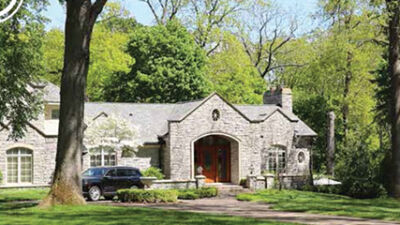BIRMINGHAM — The city of Birmingham has been addressing climate matters by forming an Ad Hoc Environmental Sustainability Committee to help move along the city’s discussions on its sustainability and climate action plan.
“(We) formed first quarter 2023,” Planning Director Nicholas Dupuis said. They met a few months after that, and have been meeting ever since, he said.
The committee consists of nine formal members, predominantly residents. An array of skill sets are represented, including knowledge of construction, environmental law, stormwater waste and electric vehicles.
“What we did when we created the board is we designed it to try to target specific skill sets, if you will, because sustainability is so broad,” Dupuis said.
Several staff members participate as well, including representatives from the city manager’s office, the Department of Public Services, the Engineering Department and the Planning Department.
“I think it goes without saying that we’re seeing all kinds of different weather impacts and impacts on humans as a result of all of these problems that are going on, so I think this (is) going to give us a framework to set up our whole sustainability plan, and the city is also doing many different things, from very small to moderate-level things, to change,” City Manager Jana Ecker said.
Dupuis said Birmingham’s course of action is similar to what Ann Arbor, Ferndale and Royal Oak have done.
“When we create ad hoc committees in the city, they are designed for a very specific purpose, and usually with a very specific timeframe,” Dupuis said. “So this specific committee, the Ad Hoc Environmental Sustainability Committee, was created to do two main things.”
Dupuis said the first thing is to complete a greenhouse gas emissions inventory, and the other is to develop a sustainability and climate action plan.
“This group, just to reiterate, only does those two things right now,” Dupuis said. “We don’t review site plans, we don’t review policy, and we don’t make recommendations on anything else. We are only working to create those two documents.”
However, Dupuis added that in the future there is the potential that the committee’s function could shift to more than working on these two documents.
“We have been doing environmentally friendly and sustainable things for quite some time now, but what we discovered through the Birmingham 2040 Master Plan process was actually that it seems like our residents wanted us to become more like a regional leader in sustainability, as opposed to just doing fine, if you will. So we kind of took that and ran with it a little bit, admittedly,” Dupuis said.
Through engage.bhamgov.org, the city is seeking the community’s input on the sustainability and climate action plan.
The survey asks questions regarding people’s awareness of sustainability and climate action on the local levels, as well as community concerns and interest.
“I want people to know that we are taking a good, honest look at the equity portion of sustainability so that we can provide a plan and policies that work for everyone,” Dupuis said.
More information can be found at bhamgov.org.
 Publication select ▼
Publication select ▼
























